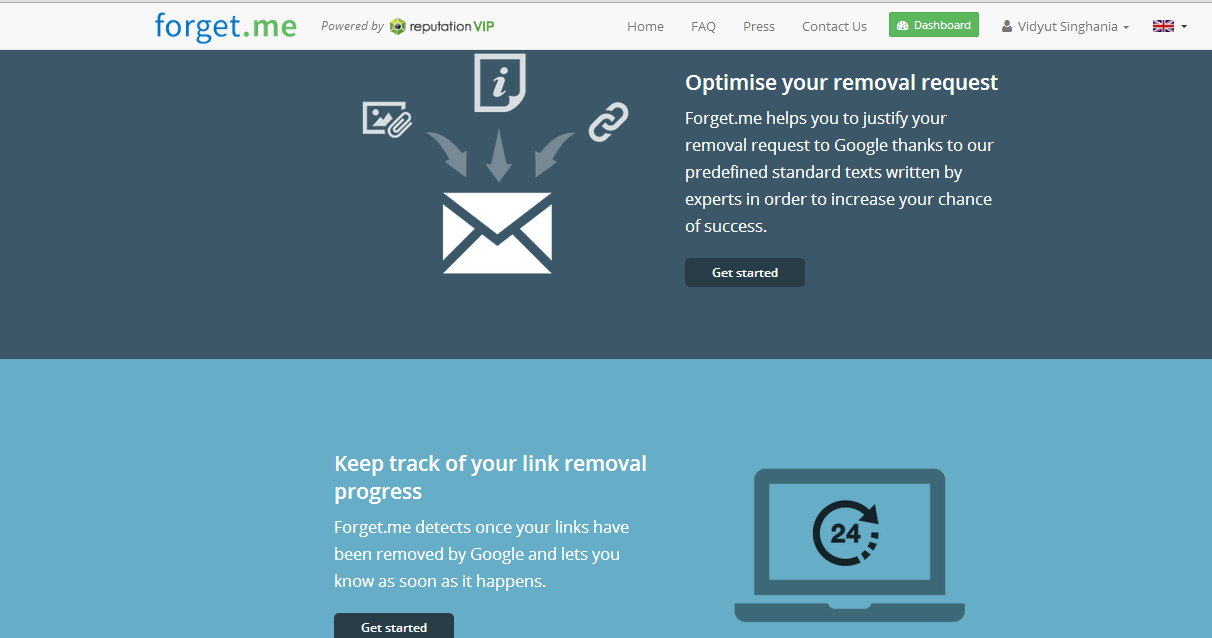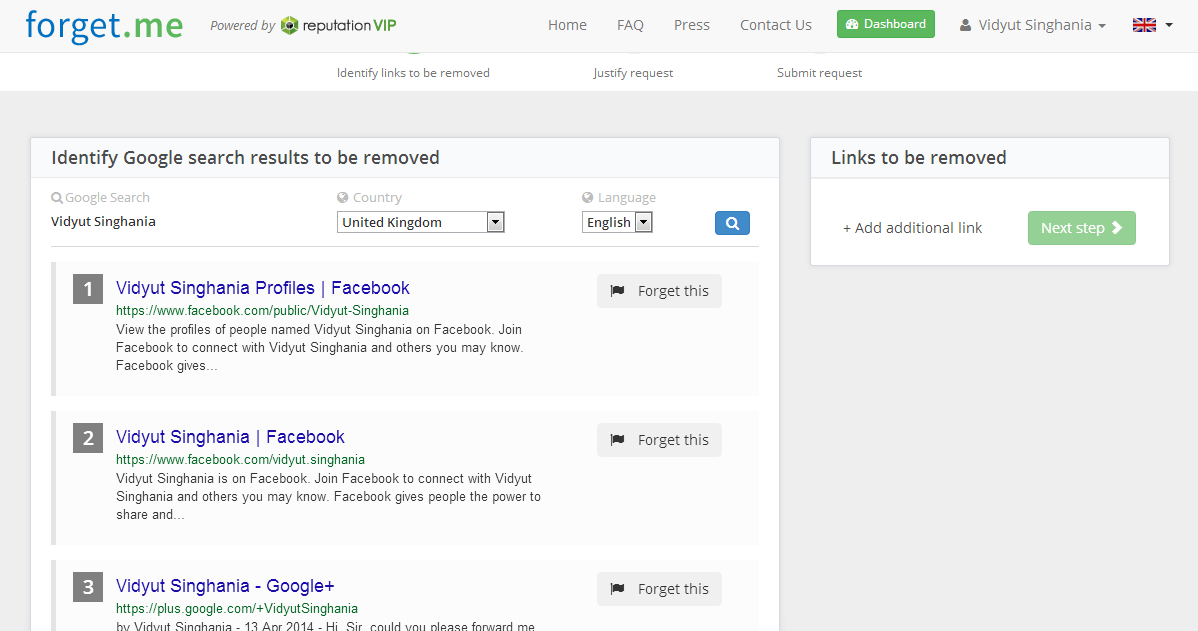There’s a new Human Right in Town – the Right To be Forgotten (RTF)!
Just imagine. You awake one morning to find that you don’t exist anymore : your best friend doesn’t know you, your girlfriend fails to remember you, your credit cards are all registered to someone else – heck, even your dog growls at you! In a last bid, you’d probably turn to Google and prove your identity, right?! Now, what if I told you even that data on the sacrosanct and untouchable Google servers has been deleted ?
If you think the aforementioned is straight outta the plot of some Hollywood movie and too far- fetched, you’re probably wrong! At least partially.
EU and Argentina have recently allowed their citizens to exercise the Right to be Forgotten (RTF) wherein one can provide links referring to their acts in the past, which they feel can be adverse to their present/future.
To help one exercise this RTF, there is a site called Forget.me which was launched almost immediately after the historic judgement in May, 2014. In fact, the site got Google to accept about 12000 requests on June 3, 2014 itself!

The site has a few unique features which appear to be quite useful – like you just have to provide your name and it jots down a few links which may be related to you – like your LinkedIn, Facebook and other social networking profiles. Once logged in, you will two options – one to provide links to be forgotten by Google and the other to follow on requested links. Quite a well thought feature one can reckon.

Having once found and selected a link to a page/article/photograph, one has to justify the reason for removal of the same. This has to be broadly classified into one of the following nine categories :
- Criminal Procedure – related to proceedings for which one has been convicted/has not yet been convicted
- Presumption of innocence – related to suspicions which never materialized into proceedings
- Misuse of Identity – Identity theft
- Invasion of Privacy
- Privacy – further classified into Defamation and Insults insinuating someone/oneself.
- Image – the most prominent and harmful of the lot, this is probably the basis of most. It can be further disintegrated into harmful or old photos,videos uploaded by you, malicious and maligning photos uploaded by someone else, unauthorized photos/videos disseminated by another, images/videos relating to drugs/alcohol or of a sexual context and last, but certainly not the least, pictures and videos of a demeaning nature.
- Death
- Homonyms – being associated with some Homonym is affecting your current life (commercially or privately)
- Other

Whilst this may seem like a cool new concept, especially for that cynical little voice at the back of your brain, I must point out that this ruling is quite abstract in it’s nature and currently only pertains to websites available/established in the EU and Argentina. Innovative and out-of -the-box thinking has already found numerous loopholes to the ruling. One such loophole is the posting of the article on a server not based in countries which allow the RTF, like google.com instead of, say, google.co.uk as the content is only removed from European search engine results and not the websites, per se. 😉
Whilst this ruling seems to be quite beneficial in certain cases – like ‘revenge porn’ , breakups or the neighborhood stalker/psycho, we have already seen a misuse when applied to numerous articles pertaining to sites like BBC, as recent as the first week of July! Case in point is Robert Peston, a renowned and prestigious BBC journalist whose 2007 article ‘Merril’s Mess’ would no longer be shown in search results within Europe, as someone had filed a request for it to be ‘forgotten’! The Guardian also had six articles taken down, in a similar manner, that week for the same reasons, and all by anonymous plaintiffs. BBC later reported that all of the Guardian pages were back in search results.
Thus, this ruling brings to the fore the question as to whether data privacy is a boon or a bane. While many will tend to help throw weight behind ‘boon’, we must remember that those few notorious and antisocial elements who misuse such tools ensure that the scales get balanced out. To help answer this question, the EU has asked Microsoft and Google to come and debate on the issue of RTF. Let’s wait and watch what this thorny issue yields!

